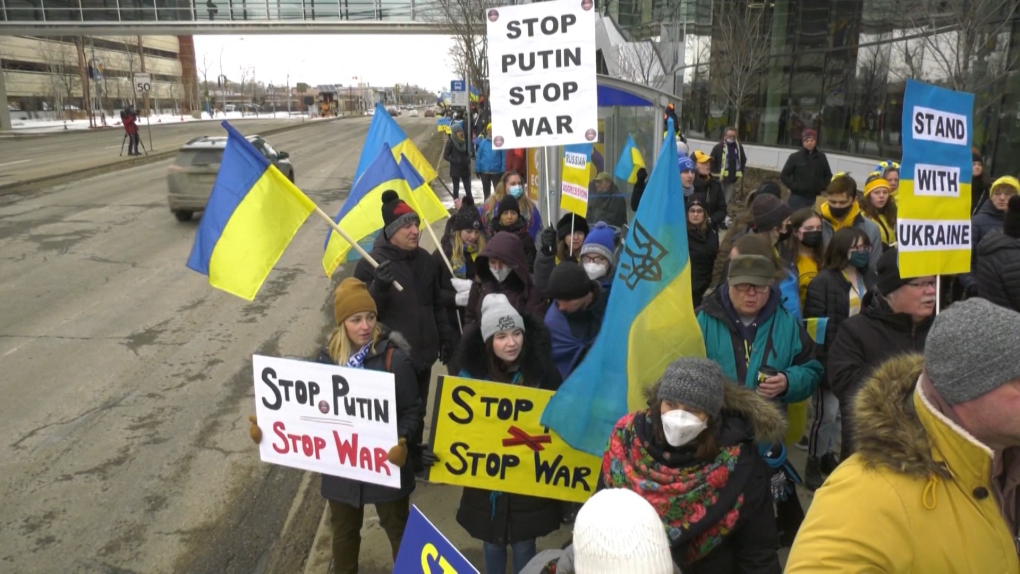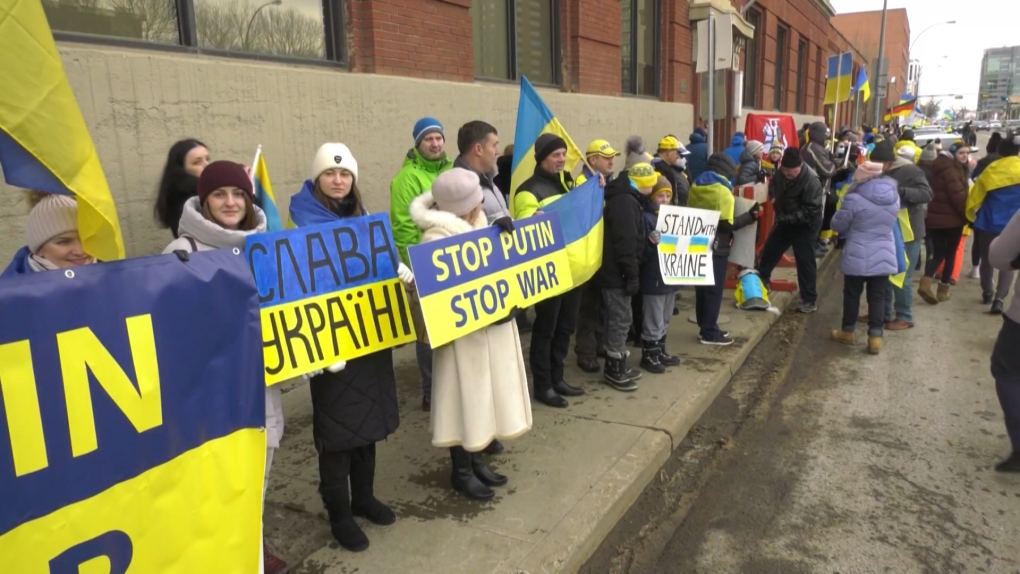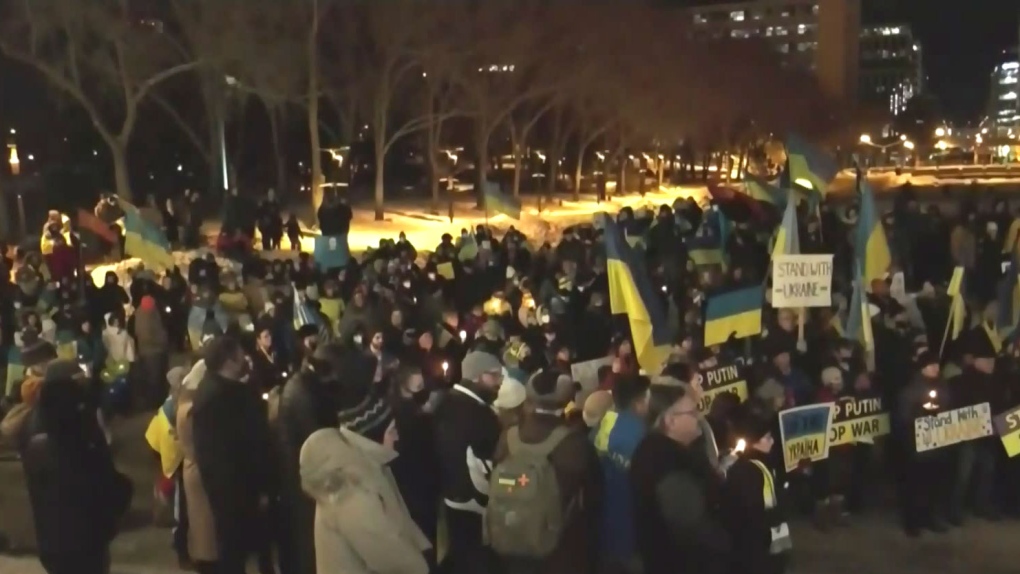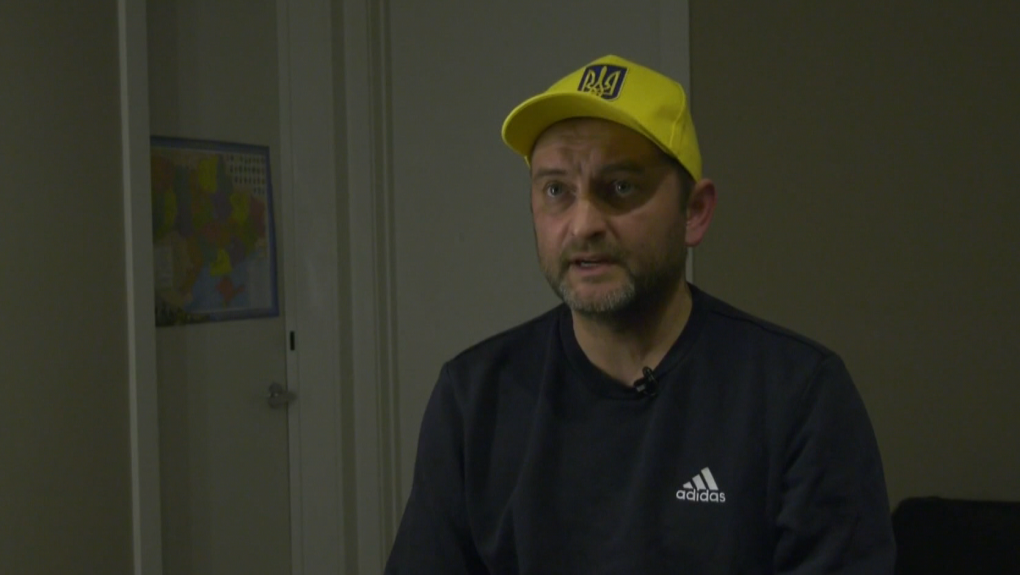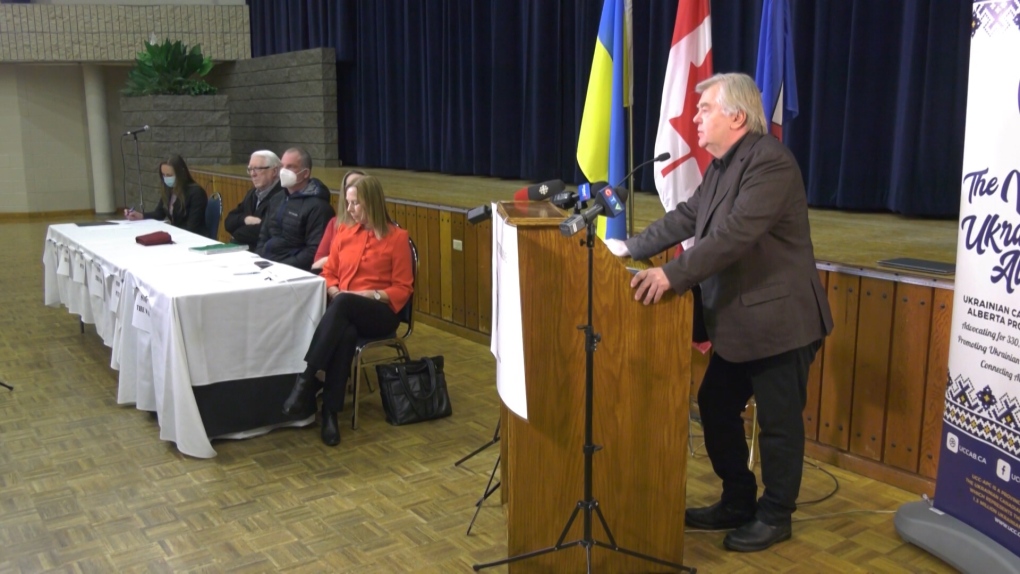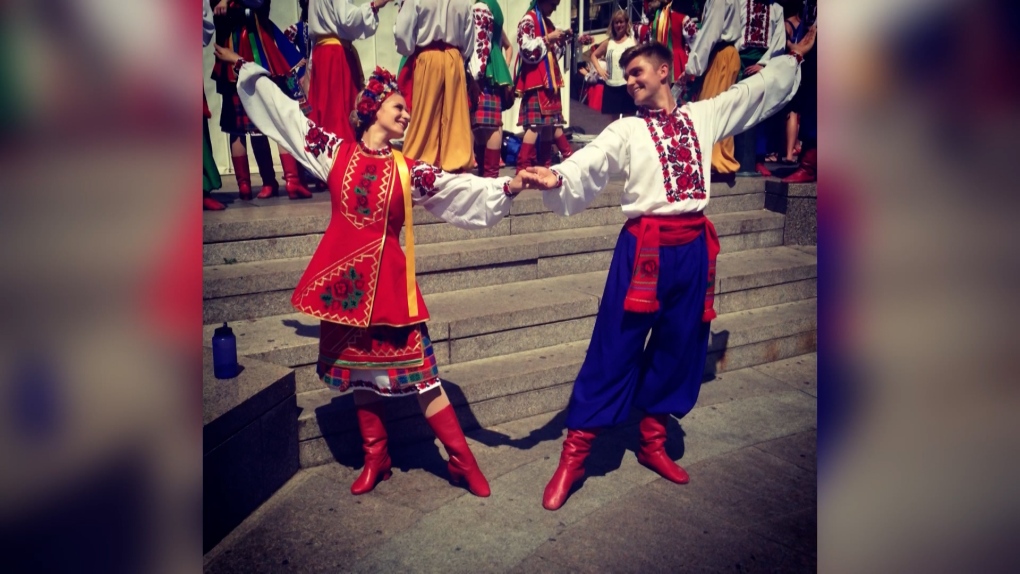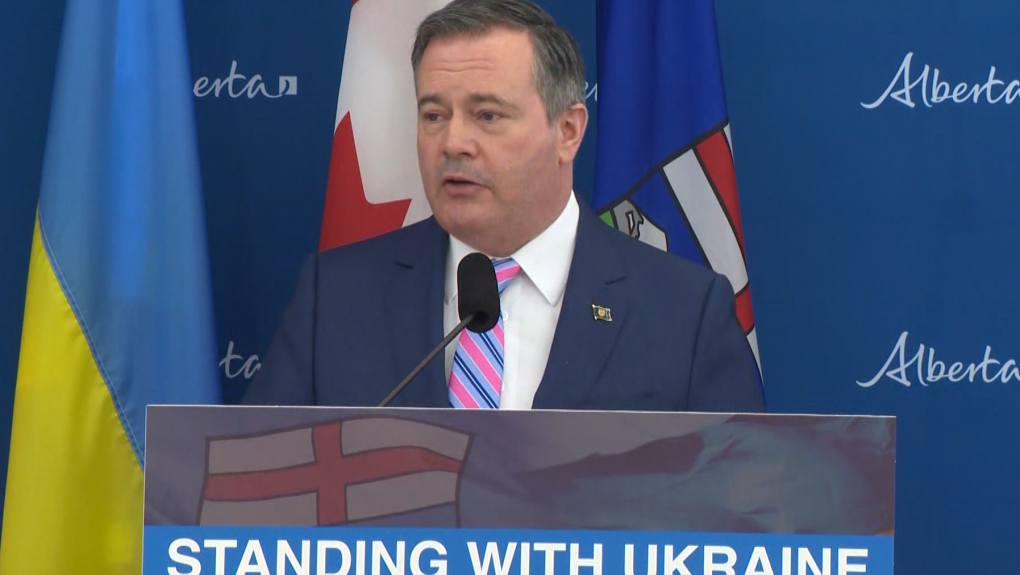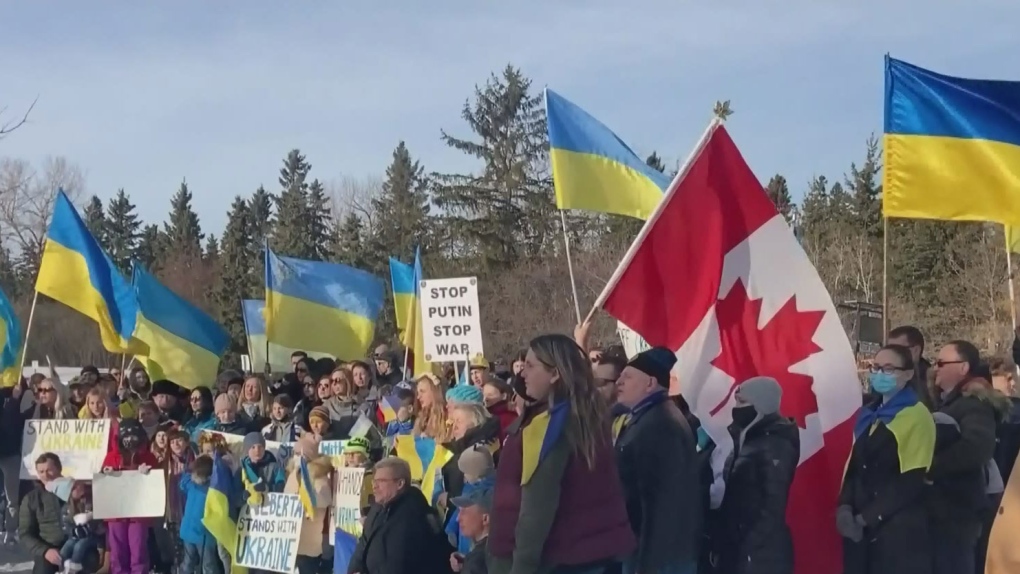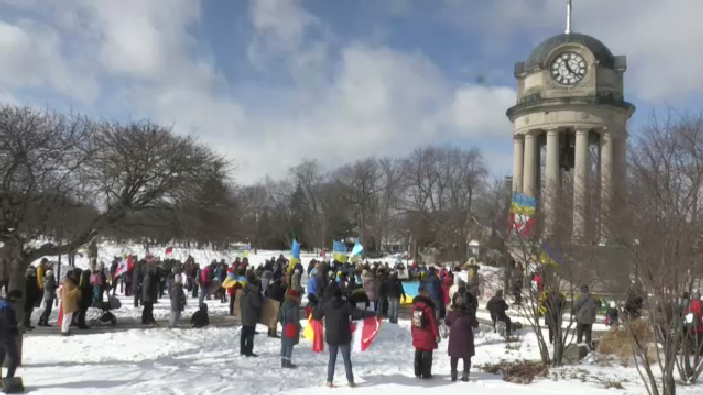What many convoy protesters get wrong about constitutional rights and the Governor General
Sun., February 27, 2022

A person holds a copy of the Canadian Charter of Rights and Freedoms on Parliament Hill during the blockade of Canada's capital city by people protesting against pandemic public health measures. (Justin Tang/The Canadian Press - image credit)
While Russia's invasion of Ukraine is expected to drive a wave of Moscow-sponsored online disinformation in the coming weeks and months, constitutional disinformation dominated much of the discussion in Ottawa during the occupation of the downtown core by anti-vaccine mandate protesters.
Many protesters upset with vaccine mandates came to Ottawa with a flawed understanding of the limits of constitutional freedoms and how the Westminster parliamentary system works.
The protesters who blockaded the city waved copies of the Charter of Rights and Freedoms in the air while chanting "freedom, freedom" in the faces of police officers and citizens trying to go about their business. They claimed they were free to protest in Ottawa indefinitely, to commandeer the streets to make their point.
Many of those participating and supporting in the blockade signed a memorandum of understanding issued by Canada Unity, one of the groups organizing the convoy. That MOU called on the Governor General and the Senate of Canada to somehow form a new government with the protesters themselves.
When the federal government eventually invoked the Emergencies Act to clear the city, many of those who had been blockading the city claimed that martial law had been imposed and their rights had been violated or erased.
Let's take a look at these claims and compare them with the facts on Canada's Charter of Rights and Freedoms and the Constitution.
Does the charter protect all freedoms of Canadians without limits?
The Charter of Rights is part of the Constitution. It outlines Canadians' rights and freedoms and limits to those freedoms.
The very first section of the charter "guarantees the rights and freedoms set out in it subject only to such reasonable limits prescribed by law as can be demonstrably justified in a free and democratic society."
In legal terms, that means that the freedoms and rights laid out in the charter are not absolute. To use the most popular analogy, one person's freedom to swing their arms around ends at the tip of another person's nose.
When rights are limited, they must be "prescribed by law" — to extend the analogy, you can't prevent someone from swinging their arms around by cutting them off. Limits to freedom must be precise so that they can be measured up against a legal standard.

Evan Mitsui/CBC
The Oakes test is used to determine if limiting a charter right is reasonable and can be justified under the law. The Oakes test says that the goal of limiting a right must be urgent and significant and that the way a right is limited must be proportional.
The Oakes test also requires a rational connection between the objective a government is trying to achieve and the right it is limiting. The right can be limited only enough to reach the objective and the harm caused by limiting a freedom must be balanced by the objective.
Martha Jackman, a constitutional law expert at the University of Ottawa, said that "the government has to meet all of" the conditions of the Oakes test.
"So if something is irrational, that's sufficient for the government to lose the ability to justify something, if it's irrational or if it's disproportionate," she said.
Canada's courts have been working out the Oakes test case by case since the charter first came into force.
Were the protesters exercising their legal right to peaceful assembly?
Section two of the Charter of Rights and Freedoms enshrines the "freedom of peaceful assembly" — but leaves it up to the courts to decide what "peaceful" means.
Court rulings going back to 1982 define the right to peaceful assembly as including the right to hold a protest on public streets, to camp in a public park as a part of that protest, and the right to wear masks during a protest.
While court rulings guarantee these rights of public assembly, they're not absolute. Like all rights in the charter, they are subject to "reasonable limits prescribed by law."

Patrick Doyle/Reuters
According to Canadian case law, assemblies cease to be peaceful when people begin rioting or when gatherings seriously disturb the peace. The right to assembly also does not include the right to physically impede or blockade lawful activities.
Jackman said that a protester's belief that a protest is peaceful does not exempt it from limitation under the law. A peaceful, non-violent protest that prevents patients from accessing a hospital, for example, could be limited under the law.
"A peaceful assembly that is violating municipal, provincial and federal law, it may well be peaceful within the contours of the peaceful assembly guarantee but that doesn't mean that it isn't subject to reasonable limits," Jackman said.
Is the Emergencies Act martial law?
Martial law is most commonly defined as the suspension of a country's laws, including civil liberties, and can involve replacing a democratically elected government with a police or military authority.
"Martial law isn't really a defined legal concept in Canada," Jackman said.
"The Emergencies Act is really our most powerful legislation in Canada to deal with national emergencies but it's not martial law."
The Emergencies Act does not suspend laws or put the military in charge of the Canadian government. In fact, the Emergencies Act stipulates that any actions taken by government while the act is in force are subject to the Canadian Charter of Rights and Freedoms and the Canadian Bill of Rights.
The act also states that a government cannot rule by cabinet while the act is in force and all orders and regulations issued while the Emergencies Act is in force must be reviewed by Parliament. The act also explains how Canadians affected by government actions during an emergency should be compensated by the state.
Can citizens or the Governor General force the dissolution of government?
Gov. Gen. Mary Simon's office received so many phone calls and emails from people asking her to dissolve the federal government during the blockade that she had to issue a statement explaining that she does not have that power.
Under Canada's Westminster form of parliamentary democracy, the Governor General acts as a proxy for the Queen and dissolves Parliament upon the request of the prime minister. When Parliament is dissolved, a new election is called.
The Governor General has the constitutional discretion to refuse a prime minister's request to dissolve Parliament, but it's generally understood that would happen only if an election had occurred recently and there was another party capable of forming government.
In 1926, Prime Minister William Lyon Mackenzie King asked Gov. Gen. Lord Julian Byng to dissolve the minority Parliament and call new elections. Byng refused. King stepped down and, a few months later, led the Liberals to a majority victory.

Evan Mitsui/CBC
Ever since, no governor general has refused a prime minister's request to dissolve Parliament. Nor has a governor general ever dismissed a prime minister and a government outright.
Citizens can only register their "non-confidence" in a government by voting in an election — by granting another party or combination of parties enough seats in the House of Commons to form a government.
Apart from a direct request from the prime minister, the only other way to dissolve Parliament is through time limits set out in law. The Constitution limits the length of each Parliament to five years.
Section 56.1 of the Canada Elections Act, which was updated in 2007, restricts the duration of a Parliament to four years. Elections can still be called by the Governor General before the four-year time period expires, but only on the advice of the prime minister.
Governments are only replaced when the prime minister resigns or is dismissed by the Governor General. The Governor General's discretion to dismiss the prime minister is extremely narrow and limited by constitutional convention.
Philippe Lagassé, an associate professor at Carleton university with expertise in parliamentary executive power, said the massive number of emails and phone calls the Governor General received from convoy protesters is more evidence of a recent trend in protest movements.
"It has become routine in Canadian politics to write a letter to the Queen, Governor General, or a Lieutenant Governor asking them to exercise their powers in some way, contrary to constitutional conventions," he said. "This is political theater, no more."




























































